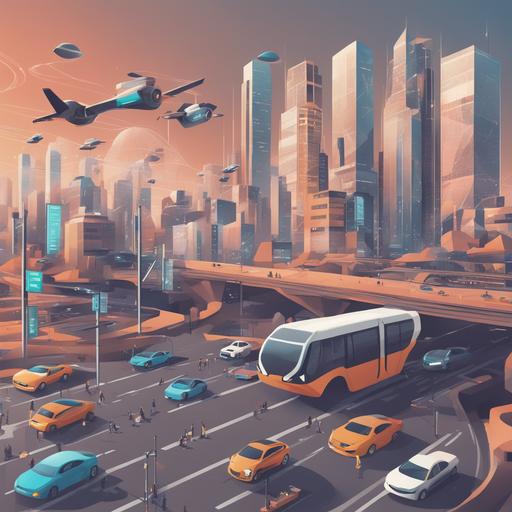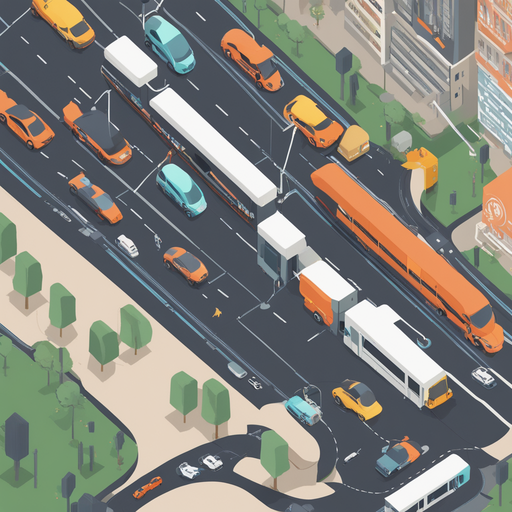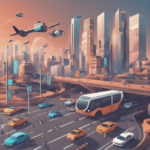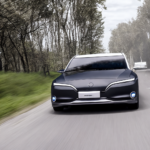 Web3 is About to Transform Transportation
Web3 is About to Transform Transportation
Transforming the Mobility SectorWeb3 is a decentralized web ecosystem that aims to build a new scalable economy where transactions are powered by blockchain technology, eschewing the need for a central intermediary or platform. In the mobility space, there are lots of things happening that are changing the way we think about transportation. Here are some ways in which Web3 is changing the future of transportation:
1. Decentralized Transportation Systems
Web3 is enabling the creation of decentralized transportation systems that are more efficient and cost-effective than traditional systems. These systems use blockchain technology to create transparent and secure records of transportation transactions, ensuring the integrity of data related to routes, schedules, fares, and payments. By eliminating intermediaries and reducing transaction costs, decentralized transportation systems can provide better services at lower prices.
2. Autonomous Vehicles
Web3 is also changing the way we think about autonomous vehicles. With blockchain technology, autonomous vehicles can communicate with each other and with other devices on the road, creating a more efficient and safer transportation system. Blockchain technology can also help ensure the security and privacy of data generated by autonomous vehicles.
3. Car Sharing
Web3 is revolutionizing car sharing by enabling peer-to-peer car sharing platforms that are more efficient and cost-effective than traditional car rental companies. These platforms use blockchain technology to create transparent and secure records of car sharing transactions, ensuring the integrity of data related to reservations, payments, and insurance. By eliminating intermediaries and reducing transaction costs, peer-to-peer car sharing platforms can provide better services at lower prices.
4. Supply Chain Management
Web3 is also changing the way we think about supply chain management in the auto industry. With blockchain technology, supply chain management can be made more efficient and transparent by creating a secure and tamper-proof record of every transaction in the supply chain. This can help reduce costs, improve efficiency, and increase transparency in the auto industry.
5. Car Financing
Web3 is also changing the way we think about car financing. With blockchain technology, car financing can be made more efficient and transparent by creating a secure and tamper-proof record of every transaction in the financing process. This can help reduce costs, improve efficiency, and increase transparency in the car financing industry.
6. Car Insurance
Web3 is also revolutionizing car insurance by enabling peer-to-peer insurance platforms that are more efficient and cost-effective than traditional insurance companies. These platforms use blockchain technology to create transparent and secure records of insurance transactions, ensuring the integrity of data related to policies, claims, and payments. By eliminating intermediaries and reducing transaction costs, peer-to-peer insurance platforms can provide better services at lower prices.
7. Smart Contracts
Web3 is also changing the way we think about smart contracts in the auto industry. With blockchain technology, smart contracts can be used to automate many aspects of the auto industry, including vehicle registration, licensing, maintenance, repair, and more. This can help reduce costs, improve efficiency, and increase transparency in the auto industry.
8. Traffic Management Systems
Web3 is also revolutionizing traffic management systems by enabling decentralized traffic management platforms that are more efficient and cost-effective than traditional traffic management systems. These platforms use blockchain technology to create transparent and secure records of traffic transactions, ensuring the integrity of data related to traffic flow, congestion pricing, tolling systems, and more. By eliminating intermediaries and reducing transaction costs, decentralized traffic management platforms can provide better services at lower prices.
9. Electric Vehicles
Web3 is also changing the way we think about electric vehicles by enabling peer-to-peer charging networks that are more efficient and cost-effective than traditional charging networks. These networks use blockchain technology to create transparent and secure records of charging transactions, ensuring the integrity of data related to charging times, fees, and payments. By eliminating intermediaries and reducing transaction costs, peer-to-peer charging networks can provide better services at lower prices.
 10. NFTs in Transportation
10. NFTs in Transportation
Finally, Web3 is also changing the way we think about NFTs in transportation by enabling new business models for vehicle ownership and usage. With blockchain technology, NFTs can be used to represent ownership rights for vehicles or access rights for transportation services such as ride-sharing or car-sharing platforms. This can help reduce costs for consumers while providing new revenue streams for vehicle manufacturers or service providers. In conclusion, Web3 is changing the future of transportation in many ways by enabling new business models that are more efficient, cost-effective, transparent,








